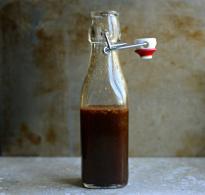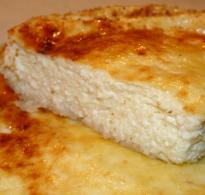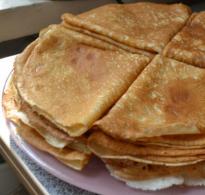E 967 additive. Food grade polyols
Xylitol (from the Greek xylon - "cut down tree") is one of the most popular. The substance was given to the world by Hermann Emil Fischer. A German chemist was the first to isolate sweet alcohol from beech wood. Xylitol's unique antibacterial properties were later identified and made it a world-class product. (the volume of the consumer market of the additive exceeds 190 thousand tons per year).
The product's name
Xylitol is the name of the additive according to GOST R 53904-2010. International synonym for Xylitol.
Other names:
- xylitol;
- pentite;
- 1,2,3,4,5-pentahydroxypentane.
Substance type
According to the main technological function, the additive E 967 is included in the category. In practice, the physical and chemical properties of xylitol make it possible to use it as an emulsifier, consistency stabilizer, and water-retaining agent.
Xylitol is a polyhydric alcohol. In its natural form, it is found in berries, mushrooms, fibers of vegetables and fruits and can be obtained by extraction. This is how xylitol was produced in the middle of the last century.
Now they have found a cheaper and more productive way. The raw materials for obtaining the additive are: cotton husks, birch sawdust, corn cobs, sunflower husks. It is allowed to use other agricultural waste containing sufficient amounts of five-carbon monosaccharides (pentoses).
In the first stage of production, D-xylose (“wood sugar”) is isolated from the starting material by hydrolysis. The reaction proceeds in the presence of mineral acids, usually hydrochloric. The xylose is then reduced to xylitol and purified.
The product is produced in food grade and pharmaceutical grade. They differ from each other in the degree of purification (the latter has a higher indicator).
Properties
Package
Additive E 967 has the ability to absorb moisture from the air, so it is packed in bags of dense polyethylene and hermetically sealed. The outer packaging is:
- winding cardboard drums;
- multilayer kraft paper bags;
- polypropylene bags.
For retail sale, xylitol is packaged in plastic jars with a screw cap or plastic bags of 10, 100, 200, 250 g.
Where and how is it applied
Additive E 967 is in high demand in the global food industry. It is allowed in 35 countries, including Russia.
Most sweets, flour confectionery, jams, fruit and vegetable purees and other dietary products are made on the basis of xylitol. The substance is considered an ideal sweetener, as it has a smooth sweet taste without extraneous notes, a low glycemic index (4 kcal / g).

As a sugar substitute, the E 967 additive is used in the composition of:
- ice cream, dairy desserts and similar products. Xylitol improves consistency, stabilizes the crystallization of fats, increases the shelf life of products;
- (the additive reduces the viscosity of the mass, improves fluidity);
- muffins (improves the structure of the crumb);
- . The additive improves the taste and color, prolongs the shelf life by slowing down the development of pathogenic microflora. The property of xylitol to retain moisture is used to increase the mass of the finished product;
- fruits, sweets, covered with .
A popular use of the E 967 additive is the production of chewing gum. Xylitol does not adversely affect the oral cavity. Moreover, many dentists consider the substance to be beneficial for dental health (for example, Doctor of Medical Sciences G. E. Afinogenov).
For this reason, the sweetener is widely used to improve the taste of toothpastes, rinses and the like. , containing at least 10% of the substance, protects tooth enamel from the adhesion of pathogenic bacteria. An important condition: the hygienic substance must be in the oral cavity for at least 3 minutes.

The functions of the additive E 967 in the composition of various cosmetic products are varied:
- moisturizing agent in makeup removers, tonics, lotions;
- consistency stabilizer in shampoos, hair rinses containing surfactants. Additionally, xylitol reduces the aggressive action of chemicals;
- cleansing, antimicrobial component in face creams, foams for washing. Xylitol improves texture, increases shelf life.
A major consumer of the E 967 additive is the pharmaceutical industry.
Xylitol as a sweetener is included in mixtures, lozenges, syrups,.
In folk medicine, the substance is used as a choleretic, anti-asthmatic, antibacterial agent. Healers recommend xylitol for the treatment of constipation, asthma, otitis, osteoporosis.
Important! Xylitol can only be used as a topical adjuvant. Before use, a doctor's consultation is necessary.Benefit and harm
Additive E 967 is generally recognized as safe for health. When taken with food, polyhydric alcohol is easily absorbed without the participation of insulin. That is, it can be taken by people with diabetes.
The use of more than 50 g of the substance per day can lead to diarrhea, but an officially acceptable dose has not been established. Caution should be taken by people suffering from various diseases of the digestive system. Individual intolerance to the product is possible.
The benefits of the E 967 supplement have been proven by numerous studies conducted by JECFA, FDA, WHO and other organizations.With reasonable consumption of xylitol:
- prevents the development of caries, strengthens tooth enamel;
- normalizes the acid-base balance in the oral cavity;
- inhibits vital activity;
- has a beneficial effect on the digestive system, has a bactericidal effect.
Additive E 967 is non-toxic, has no carcinogenic and mutagenic properties. May be recommended for children over 3 years of age (after consulting a doctor).
Main manufacturers
In Russia, the production of additive E 967 has been stopped since 1993.
The largest player in the xylitol market is the Finnish company Cultor (80% of world production). Recently, the Danish company Danisco has joined it.
Sweetener E 967 is produced by:
- Hager&Werken (Germany);
- Jiachem Dentbio Co., Ltd. (China);
- Shanghai Golden Orient Machinery Co. (China).
At home, on the basis of a sweet additive, you can cook many healthy dishes: cereals, desserts, jams, cakes. It is important to remember: xylitol should not be added to yeast dough. The sweetener is an unfavorable environment for yeast growth.
White crystalline powder without a definite odor with a pronounced sweet taste (approximately equal to sugar). After consumption, it leaves a characteristic cooling aftertaste on the tongue. Differs in good solubility in water, average - in ethylene, pyridine, glycols and acetic acid. In fatty solvents, food additive E967 does not dissolve.
Xylitol is produced industrially from agricultural waste by reducing xylose under pressure. Despite the high calorie content, which is on the same level as sugar, the biological value of the E967 food additive is very low. The ability not to affect blood glucose levels makes xylitol popular as a sugar substitute for obesity and diabetes.
Purpose
Generally, food additive E967 is used as a sugar substitute, stabilizer, water-retaining agent, emulsifier and flavor enhancer. As a rule, this substance is used in the production of low-calorie and sugar-free foods, as well as fermented milk desserts, canned fruits and vegetables. In addition, xylitol is often included in starch-based dried fruit products, confectionery products, sauces, mustard, mayonnaise, meat and sausage products.
Impact on the body
Subject to the maximum allowable dose of consumption, the food additive E967 does not have a negative effect on the human body. However, a number of studies have found xylitol to have choleretic and laxative properties, as well as the ability to cause bladder cancer.
The maximum allowable daily dose
Permissions to use
Food additive E967 is approved for use in food production in Russia and the European Union.
The name xylitol, perhaps familiar to many, belongs to the additive, which is registered under the marking cipher number E 967.
This product has found application in several directions at the same time.
The substance is used both as an excellent emulsifier and as a stabilizer, as well as a sweetener and a moisture-retaining agent.
Despite the purely synthetic nature of its origin, this additive has a minimal level of danger to human health.
Origin: synthetic;
Danger:minimum level;
Synonymous names:xylitol, E967, xylitol, E-967, xylitol, xylitol.
general information
Mankind got acquainted with xylitol in the 19th century. The substance was synthesized by researchers - chemists German E. G. Fischer and Frenchman M. G. Bertrand. They did not do it together, but almost at the same time. As a sweetener, the product has been used since 1930 in Finland.
Industrial production began only in the early 60s of the last century. At the same time, it was awarded the status of an additive with the marking E 967.
Waste that is obtained as a result of the processing of agricultural products of plant origin and serves as a raw material for the production of xylitol. Most often, sunflower husks, corn cobs or cotton husks are used. For this purpose, the wood of trees, as a rule, of deciduous species, is also used. Xylitol is also present in the fiber of many fruits, in mushrooms.
Produced as a result of certain technological processes and chemical reactions, in particular, xylose reduction under pressure, the product is the owner of a crystalline form and low calorific value. This compound is organic, more precisely, a polyhydric alcohol.

Hygroscopic crystals have a sweet taste, moreover, pronounced. When touched on the tongue, it leaves a characteristic pleasant chill. The smell of the substance is practically absent. In relation to acidic environments and heating, the product is quite stable. Boiling occurs closer to a temperature of +215 0 C. The melting point may fluctuate. Usually it is +93 0 С - +94.5 0 С.
Solubility in different substances is different. This product exhibits stability, for example, in relation to fatty solvents, but it has excellent solubility in the same water. You can indicate the average degree - in acetic acid, pyridine, as well as ethyl and glycols.
Effect on the body
It is considered a low-calorie product, since it is practically not absorbed by the human body.
Harm
Researchers prove that xylitol does not cause serious pathologies in the human body, since it is non-toxic and has a low glycemic index. A large amount of a substance consumed at a time can provoke bloating and diarrhea, more.

Some sources indicate a possible development with excessive passion for xylitol. Abuse of the product can also lead to increased secretion of bile. It is not recommended to eat more than 50 grams of xylitol per day.
Benefit
It is considered the best sugar substitute. Unlike the more common and used sugar, xylitol does not raise glucose levels. Therefore, it is recommended for diabetics and obese patients.
Researchers, mostly foreign, prove the possibility of using the substance in the treatment of some serious pathologies, for example, diseases of the respiratory apparatus, especially its upper region, as well as diseases of the hearing apparatus.

Xylitol has been reported to help reduce the risk of transmission (by as much as 80%) during pregnancy from mother to baby of the dangerous bacterium Streptococcus mutans, which contributes to tooth decay.
Nasal administration of xylitol is a fairly effective treatment for asthma.
Usage
In the food industry, E 967 is mainly used as a sweetener. The substance is especially popular for the production of diabetic products and for obese patients. Xylitol is also found in chewing gums.
E 967 is an excellent stabilizer for edible fats. Thanks to the additive, it is possible to significantly extend the shelf life of products, for example, milk concentrates, meat products.
E 967 is used by manufacturers of oral care products. In this regard, the combination of its sweetness and antibacterial properties helps to create quality products, such as toothpastes, sanitary napkins, rinses, and other products.

Xylitol is used as a moisture-retaining agent, as well as a thickening and gelling ingredient in products intended for hair and skin care.
Xylitol is also in demand in the pharmaceutical industry. It is included in some pharmaceuticals that are considered safe for certain conditions, usually diabetics and obese people. These are, for example, vitamins, syrups, medicines, and other preparations.
As a moisture stabilizer and plasticizer, E 967 is used in the paper industry and in the production of cellophane. Xylitol is used for the production of detergents, glues, varnishes, synthetic resins and other products of this kind.
Legislation
Additive E 967 is allowed at the state level, which is confirmed by legislative acts and relevant standards in many states. Among them are the countries of the European Union, the former CIS countries, Ukraine, the Russian Federation.






